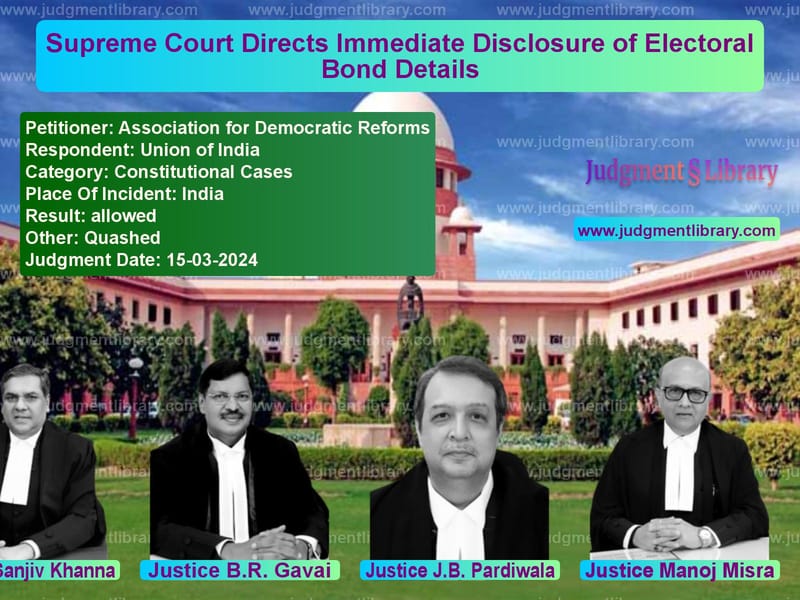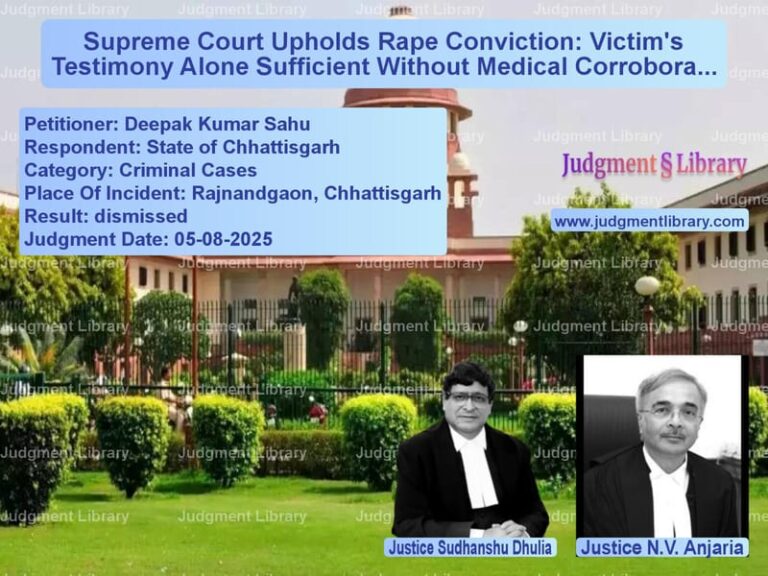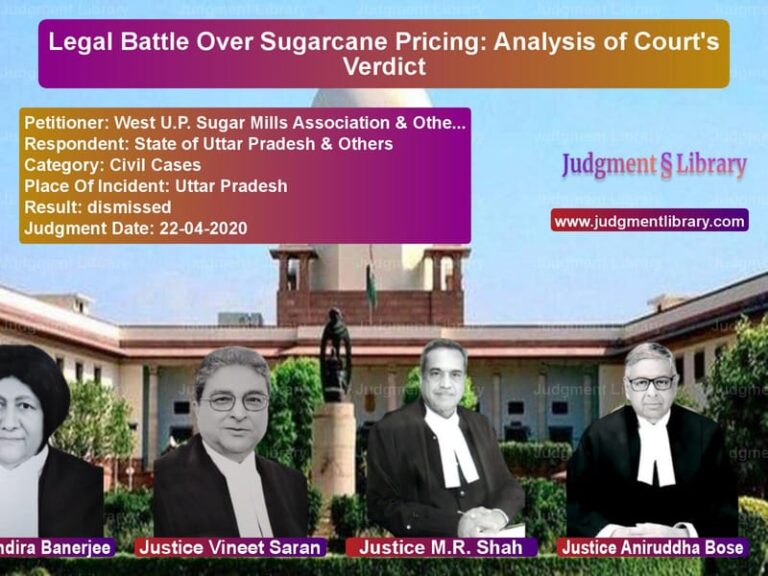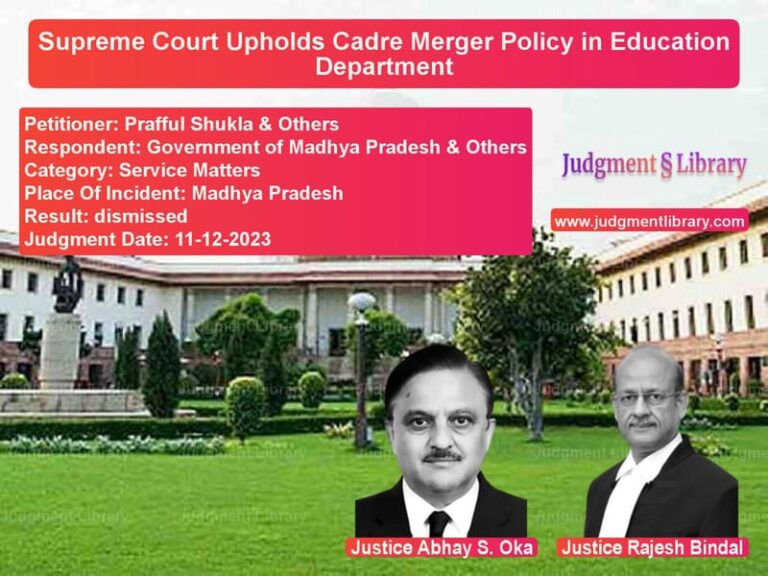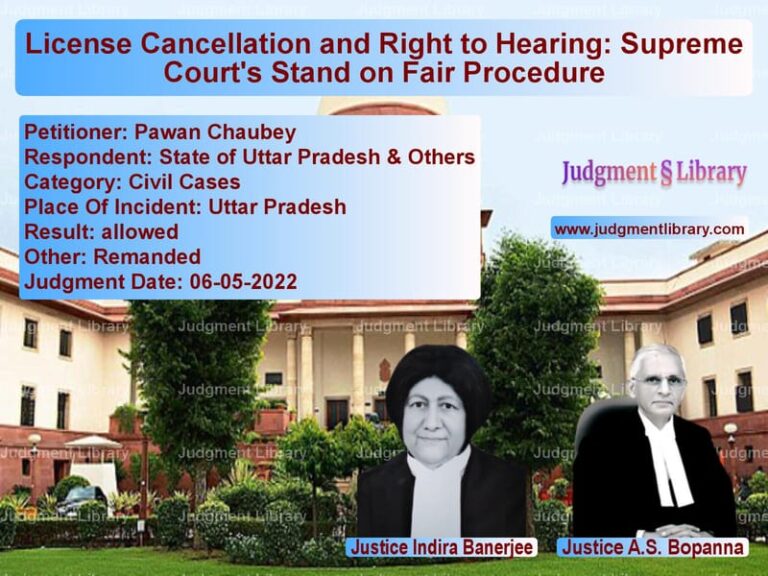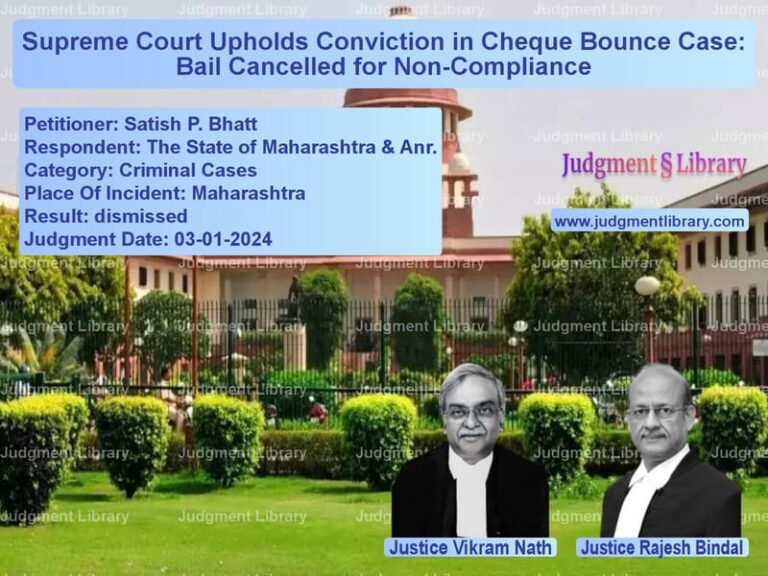Supreme Court Directs Immediate Disclosure of Electoral Bond Details
The Supreme Court of India, in a significant ruling, has reaffirmed its commitment to electoral transparency by directing the Election Commission of India (ECI) and the State Bank of India (SBI) to ensure full disclosure of electoral bond details. This judgment, delivered in Association for Democratic Reforms & Another v. Union of India, mandates the immediate release of all data regarding electoral bond transactions.
Background of the Case
The case stems from challenges to the Electoral Bond Scheme, introduced through the Finance Act, 2017. The scheme allowed anonymous donations to political parties, raising concerns about transparency and accountability in political funding. Petitioners, including Association for Democratic Reforms (ADR), argued that the scheme violated the fundamental right to information under Article 19(1)(a) of the Constitution.
On February 15, 2024, the Supreme Court declared the scheme unconstitutional and directed SBI to furnish complete details of electoral bond transactions. The latest order, dated March 15, 2024, reinforces the Court’s stance by instructing SBI and ECI to expedite the publication of this data.
Read also: https://judgmentlibrary.com/supreme-court-orders-immediate-disclosure-of-electoral-bond-details/
Petitioner’s Arguments
ADR and other petitioners contended that:
- Right to Information Violation: The anonymity of electoral bonds deprived citizens of their fundamental right to know the source of political funding.
- Encouragement of Corruption: The scheme enabled undisclosed corporate and individual contributions, facilitating undue influence over policymaking.
- Unequal Electoral Playing Field: The ruling party disproportionately benefited from anonymous donations, creating an imbalance in political competition.
- Lack of Regulatory Oversight: SBI, as the sole issuer of electoral bonds, maintained separate records for donors and recipients, making it difficult to track transactions.
Respondent’s Arguments
SBI and the Union of India defended the scheme, stating:
- Protection of Donor Privacy: The anonymity provision was designed to prevent political retribution against contributors.
- Legitimization of Political Donations: The scheme aimed to shift political funding away from unaccounted cash transactions.
- Technical Challenges in Data Compilation: SBI argued that donor and recipient details were stored separately, requiring additional time for processing.
Supreme Court’s Observations
The Supreme Court dismissed SBI’s plea for additional time, emphasizing that compliance with its previous orders was imperative. Delivering the judgment, Chief Justice Dr. Dhananjaya Y Chandrachud stated:
“The non-disclosure of political donations infringes on citizens’ fundamental right to information and undermines democratic accountability. SBI must comply with the order without delay.”
The Court further ruled:
- The Electoral Bond Scheme facilitated opacity in political funding: The scheme concealed the source of political donations, undermining democracy.
- Article 19(1)(a) Violation: The lack of disclosure violated the citizens’ right to information.
- Article 14 Breach: Unlimited corporate donations, combined with donor anonymity, created an arbitrary advantage for ruling parties.
Final Judgment
The Supreme Court issued the following directives:
- Immediate Disclosure of Data: The Registrar (Judicial) of the Supreme Court must ensure that the data submitted by ECI in compliance with the Court’s interim orders is scanned and digitized.
- Return of Original Data: Once digitization is complete, the original records shall be returned to ECI for publication.
- Deadline for ECI: ECI must upload the complete data on its website by March 17, 2024.
- Notice to SBI: SBI must disclose additional details, including the alphanumeric numbers of electoral bonds, and a senior officer responsible for managing these details must be present at the next hearing on March 18, 2024.
Implications of the Judgment
The ruling has far-reaching consequences for political financing:
- End of Anonymous Corporate Donations: The judgment ensures transparency in political funding by making donor details public.
- Strengthened Electoral Democracy: Voters will now have access to political funding information before elections, enhancing accountability.
- New Campaign Finance Reforms: The government may introduce alternative political funding mechanisms to comply with constitutional requirements.
Conclusion
The Supreme Court’s ruling marks a turning point in India’s electoral finance regulations. By ensuring transparency in political contributions, the Court has reinforced democratic accountability and set a precedent for future reforms in election funding.
Petitioner Name: Association for Democratic Reforms.Respondent Name: Union of India.Judgment By: Justice Dhananjaya Y Chandrachud, Justice Sanjiv Khanna, Justice B.R. Gavai, Justice J.B. Pardiwala, Justice Manoj Misra.Place Of Incident: India.Judgment Date: 15-03-2024.
Don’t miss out on the full details! Download the complete judgment in PDF format below and gain valuable insights instantly!
Download Judgment: association-for-demo-vs-union-of-india-supreme-court-of-india-judgment-dated-15-03-2024.pdf
Directly Download Judgment: Directly download this Judgment
See all petitions in Fundamental Rights
See all petitions in Constitution Interpretation
See all petitions in Public Interest Litigation
See all petitions in Judgment by Dhananjaya Y Chandrachud
See all petitions in Judgment by Sanjiv Khanna
See all petitions in Judgment by B R Gavai
See all petitions in Judgment by J.B. Pardiwala
See all petitions in Judgment by Manoj Misra
See all petitions in allowed
See all petitions in Quashed
See all petitions in supreme court of India judgments March 2024
See all petitions in 2024 judgments
See all posts in Constitutional Cases Category
See all allowed petitions in Constitutional Cases Category
See all Dismissed petitions in Constitutional Cases Category
See all partially allowed petitions in Constitutional Cases Category

